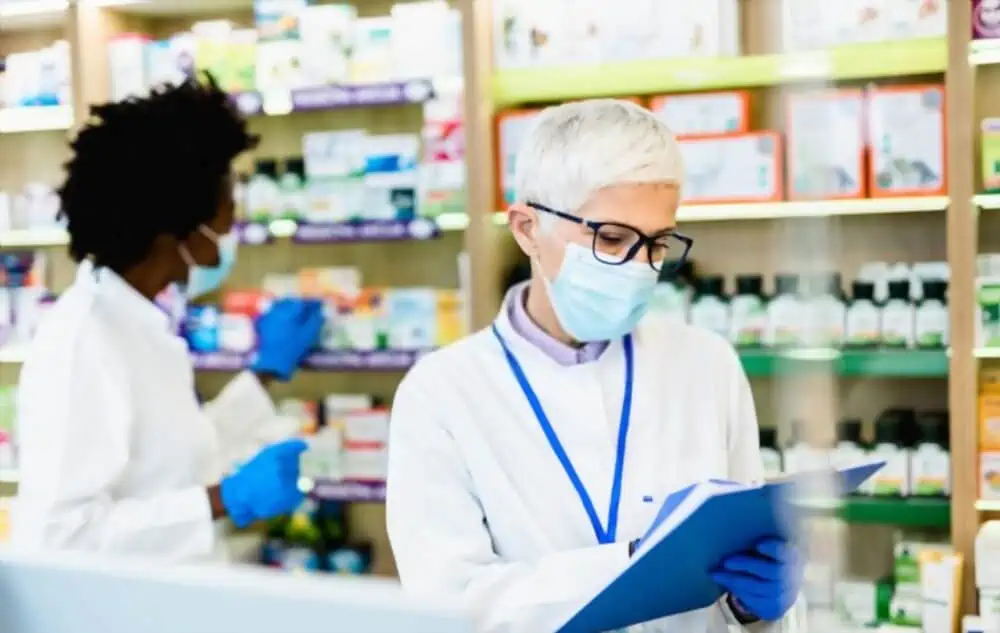Choosing a healthcare career can be a very difficult decision to make. You just want to help people, but it can be hard to find the best way to do it.
Healthcare has several career opportunities, with medicine and pharmacy being the most popular. Medical and pharmacy schools receive the most applications from students nationwide every year.
If you are also interested in pursuing a career in medicine or pharmacy, you should know what sets both apart. In this article, I will walk you through what makes a medical school different from a pharmacy school.
Medical School vs. Pharmacy School
Before entering the medical field, students must research the areas they want to pursue. As I mentioned earlier, this article will explain what each profession, medicine, and pharmacy, does, among other things.
What does a Medical doctor do?
A medical doctor is trained and licensed to diagnose, treat, and prevent illnesses and injuries in patients. They perform physical examinations, order and interpret medical tests, prescribe medications, and develop treatment plans.
Also, medical doctors may specialize in various fields, such as surgery, pediatrics, internal medicine, obstetrics, and more, to provide specialized care to patients with various medical needs.
What does a pharmacist do?
A pharmacist is a healthcare professional licensed to dispense medications and provide expertise on their proper use. Although pharmacy and medicine are interdependent, they are different from each other.
Many people assume that all pharmacists dispense drugs — they do way more than that. Pharmacists also play a crucial role in monitoring patients’ medication schedules to ensure effectiveness and safety.
Differences between Medical School and Pharmacy School

As I mentioned earlier, medical and pharmacy school may be closely related, but there is a significant difference between them. Usually, medical students offer a bit more anatomy and biology, while pharmacy students offer more chemistry.
Medical school may be the right choice if you are enthusiastic about human anatomy. If you are particular about the chemical reactions in the human body, pharmacy may be the better choice.
If you are contemplating choosing a career between medicine and pharmacy, you should know what both programs entail and what sets them apart.
1. Medicine centers on treatment, whereas pharmacy centers on medication
Medicine involves applying healthcare practices to uphold and restore an individual’s health and well-being. Doctors primarily diagnose illnesses, diseases, and injuries and determine the most suitable treatment, which often includes prescribing medications.
On the contrary, pharmacy revolves around the science and method of preparing and dispensing medicine. Pharmacists ensure the accuracy of prescriptions while considering factors like drug interactions, side effects, and the patient’s physiology.
In essence, medicine is all about the treatment process, which involves meeting with patients, diagnosing conditions, and administering suitable treatment. Meanwhile, pharmacy focuses on the medication used in treating patients, ensuring that they are used appropriately and effectively.
2. A medical degree takes longer to complete
If you know anyone who matriculated into a medical school, you will notice that they spend more time than students in pharmacy school.
A medical degree takes an average of 6 years, excluding the compulsory housemanship, which takes two years to complete. This time range also does not include the necessary pre-medical study.
On the other hand, pharmacy students only have to spend four years in pharmacy school. Also, the compulsory internship for pharmacy graduates is only one year compared to the two years for medical students.
3. Medical schools are more expensive
Without a doubt, pursuing any degree is not cheap. However, a degree like MBBS or MBChB is not like any other degree; it costs a lot.
Comparing the tuition fee in a pharmacy school to that of a medical school would be like multiplying it by 2. This shouldn’t come as a surprise, as it costs more to train doctors than to train pharmacists and other medical personnel.
If you have been finding it difficult to choose between medical school and pharmacy school, one thing you might want to consider is the cost of getting the degree. If you don’t have the resources to pursue a medical school degree, don’t go for it. A pharmacy degree is not cheap, but it is also not as expensive as a medical degree.
4. Career options are different
You cannot become a medical doctor with a pharmacy degree or a pharmacist with a medical degree; the career options for both fields are different.
If you graduate with a medical degree, the natural path is to become a medical doctor. You can practice in a government or private institution treating patients full-time or part-time.
Some medical doctors also join academic institutions to lecture students or do research work. Some doctors assist with developing healthcare policies. You should also know that the pay range for these options differs.
Similarly, graduating with a pharmacy degree allows you to pursue a career as a pharmacist. However, based on your interests, you can practice in community pharmacies or hospital pharmacies.
Many pharmacists also prefer delving into industrial pharmacy, where they are usually involved in manufacturing and quality control medicines.
5. It is harder to get into medical school
Although students find it hard to enter medical and pharmacy schools, it is harder to enter medical school. The requirements to get admitted into medical school are more than that involved in pharmacy school. However, these requirements depend on the particular school you are applying to.
If you meet the minimum requirements for admission, you can go ahead, but if you don’t, you should just go for a program you can ace easily.
You can know if getting into a school will be easy by looking at its past acceptance rates. Schools with high acceptance rates are easier to get into than those with lower acceptance rates.
Which is better: Medical school or Pharmacy school?

The concept of “better” depends on your preferences, interests, and career aspirations. Medical and pharmacy schools offer valuable and rewarding career paths in the healthcare field.
Medical school is ideal if you have a strong interest in becoming a physician and want to be directly involved in diagnosing and treating patients, performing surgeries, and managing complex medical conditions.
Pharmacy school is an excellent option if you are passionate about medications, drug interactions, and patient safety. Pharmacists play a crucial role in ensuring proper medication management and counseling patients on using their medications.
The decision should be based on what aligns best with your skills, interests, and long-term career goals. Both paths offer opportunities to make a significant impact in the healthcare industry.
Wrapping Up
Even though it is harder to enter medical school, statistics show that more students apply to medical schools than to pharmacy schools. As competitive as medical schools are, students still apply for as long as they can until they are finally matriculated. This involves a lot of dedication, hard work, and patience.
If you consider applying to a medical school, you should ensure you have all these virtues, which will help along the line. Yes, they are needed for pharmacy school too, but you will need them more in medical school.
When choosing which program to attend in Medicine and Pharmacy, always consider your skills and abilities before anything. If you believe you are capable and have the necessary skills, go for it.
Also, your interests should be included in your decision-making. As mentioned earlier, medicine involves more human anatomy and biology, while pharmacy involves more biochemistry.
Therefore, your enthusiasm in any of these pre-medical courses should be considered before pursuing a degree in medicine or pharmacy.

Sam is a brilliant young Nigerian biochemistry student and an aspiring entrepreneur. Despite facing many challenges, he has never lost his passion for learning and drive to make a difference in the world. Read more about him here.